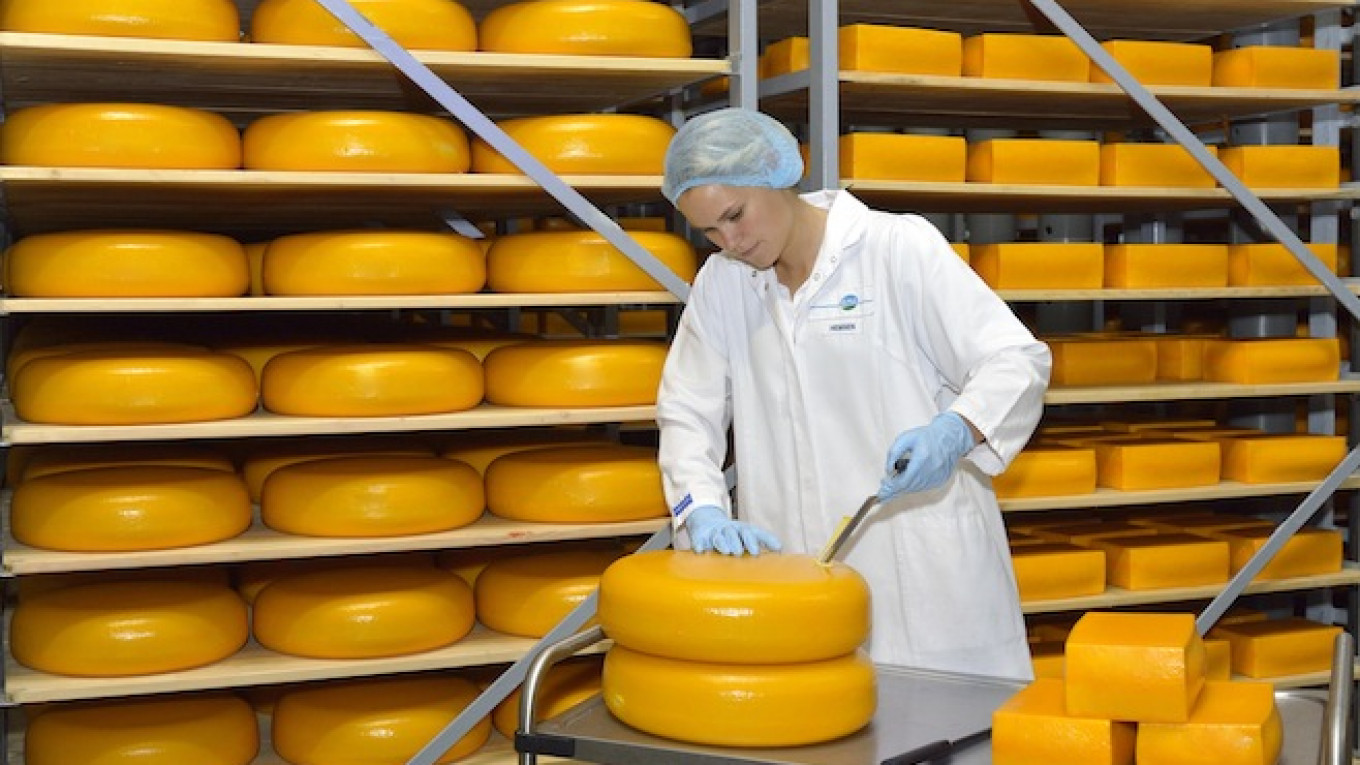Where to Buy Cheese: Top Cheese Shops Melbourne
Where to Buy Cheese: Top Cheese Shops Melbourne
Blog Article
Comprehending the Science Behind Cheese Production: From Milk Selection to End Product
The elaborate process of cheese production starts with the careful selection of milk, a choice that exceptionally impacts the final item's taste and appearance. Understanding the essential duty of microorganisms in fermentation discloses just how these microorganisms transform lactose into lactic acid, a crucial component in creating the cheese's personality. cheese shop melbourne.
Milk Choice Refine
The option of milk is an essential action in the cheese manufacturing procedure, as it straight affects the taste, structure, and high quality of the end product. Various aspects need to be taken into consideration during this option, consisting of the resource of the milk, the breed of the animals, and their diet. Cow's milk, goat's milk, and lamb's milk each possess distinct residential or commercial properties that contribute to the unique characteristics of various cheese varieties.

Additionally, the nutritional material of the milk, affected by the animal's diet regimen, can alter celebrity's last qualities. Top notch milk, sourced from healthy animals, makes certain an exceptional cheese item, emphasizing the value of rigorous quality assurance actions in the milk selection process. Therefore, cautious factor to consider in milk option is essential for successful cheese manufacturing.

Duty of Germs in Fermentation
Following the mindful choice of milk, the fermentation process plays an essential duty in cheese production, where germs are presented to transform the milk right into cheese. The main function of these germs is to convert lactose, the sugar existing in milk, into lactic acid. This acidification not only modifies the pH of the milk however also plays an important role in flavor development, structure, and preservation of the end product.
Lactic acid germs (LAB), such as Lactococcus and Streptococcus types, are commonly made use of in cheese production because of their capacity to flourish in milk and their payment to the fermentation process. The metabolic activities of these bacteria cause the manufacturing of different metabolites, consisting of taste compounds and antimicrobial materials, which inhibit wasting organisms and pathogenic bacteria, therefore improving cheese safety and security.
Additionally, the fermentation procedure affects the overall qualities of celebrity, including its fragrance, taste, and appearance. Various strains of bacteria can give distinctive flavors and contribute to the special accounts of numerous cheese types. Hence, the option of microbial cultures is an essential action in achieving the preferred cheese high quality and uniformity.
Coagulation and Curd Development
In celebrity production process, coagulation marks a critical transition from fluid milk useful content to strong curds. This change is largely generated by the enhancement of rennet, an enzyme that acts on casein, the primary healthy protein in milk. When rennet is introduced, it helps with the aggregation of casein particles, resulting in the development of a gel-like structure. This process is frequently complemented by the acidic setting developed by lactic acid germs, which additionally aids in coagulation by lowering the pH of the milk.
The resulting curds are created as the liquid whey begins to divide. Aspects such as temperature, the amount of rennet utilized, and the moment permitted coagulation are necessary in establishing the structure and quality of the curds. Greater temperature levels and longer coagulation times normally yield stronger curds, ideal for tougher cheeses.
Once curds are created, they are cut right into smaller pieces, permitting whey to leave extra effectively. This step is essential, as it affects the moisture material and total qualities of the last cheese item. Appropriate monitoring of coagulation and curd formation is vital for achieving certain cheese designs and desired flavor accounts.
Aging and Flavor Advancement
After the curd has actually been developed and whey has actually been drained pipes, the next phase in cheese manufacturing is maturing, additionally understood as growth. This crucial process substantially affects the cheese's final flavor, appearance, and fragrance. During aging, numerous biochemical and microbiological changes happen, influencing the total sensory profile.
The aging atmosphere, consisting of temperature level and moisture, plays a vital function in flavor advancement. Enzymes and germs existing in celebrity help with the malfunction of healthy proteins and fats right into smaller sized particles, leading to the development of amino acids, fatty acids, and volatile compounds. These improvements contribute to the complexity of flavor site here and scent, with unique accounts arising based upon the specific cheese variety.
Additionally, the period of aging is crucial; shorter aging durations typically yield milder flavors, while longer maturation cause even more durable and nuanced accounts. Factors such as the milk source, cheese type, view publisher site and details aging techniques further boost the variety of flavors produced. Ultimately, aging is a delicate equilibrium of time, environmental conditions, and microbial task, finishing in the special qualities that define each cheese variety.
Top Quality Control in Cheese Manufacturing
Making sure high requirements throughout the cheese manufacturing procedure is crucial for supplying a top quality item that satisfies consumer assumptions - cheese store melbourne. Quality assurance (QC) includes different phases, starting from raw milk selection to the last aging process. Each phase needs meticulous focus to detail to stop contamination and guarantee consistency
Throughout milk selection, manufacturers should analyze aspects such as fat content, pH degrees, and microbial quality. Normal testing for somatic cell matters and microbial loads is important to guarantee the milk's viability for cheese making. In the manufacturing stage, QC steps consist of checking the temperature level, acidity, and rennet task, which considerably affect texture and taste.
As cheese grows, continuous sensory analyses and laboratory evaluations are performed to analyze flavor advancement, appearance, and overall quality. Any kind of deviations from established requirements demand rehabilitative actions to preserve item honesty.
Additionally, paperwork and traceability are essential components of efficient top quality control, making it possible for manufacturers to track the cheese from ranch to consumer. By carrying out durable QC methods, cheese manufacturers can not only boost product quality but additionally build consumer depend on, guaranteeing their area in an affordable market.

Verdict
To conclude, the science of cheese production incorporates a number of critical points, each dramatically affecting the end product. The mindful choice of milk, the important duty of germs in fermentation, the change of fluid milk into curds through coagulation, and the aging procedure collectively add to the growth of special tastes and structures. Stringent top quality control measures ensure that each cheese variety fulfills recognized criteria, thereby improving customer satisfaction and maintaining the honesty of the cheese-making tradition.
Report this page